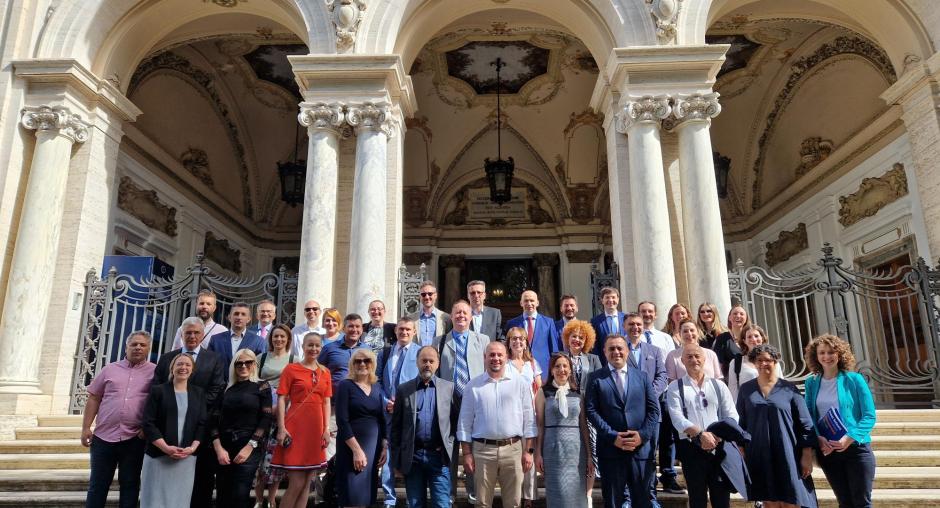OSCE holds seminar on confiscation and re-use of criminal assets

Following national awareness raising workshops on social re-use of confiscated assets in 2020 and 2021, government officials and civil society representatives from South-Eastern Europe gathered in Rome on 30 and 31 May for a seminar on the re-use, including re-use for social purposes, of criminal assets.
Participants discussed the importance of asset recovery as a key mechanism in the fight against organized crime and corruption and addressed the challenges encountered in different jurisdictions for asset recovery. Experts from OSCE participating States also shared some of their country's best practices.
Arnaldo Minuti, Head of the Transnational Threats Office of the Italian Ministry of Foreign Affairs and International Cooperation welcomed the participants by highlighting that “the very idea that the criminal assets can be given back to the communities for their own good embraces indeed a whole of society paradigm, where civil society organizations are entitled to play a significant role”.
In his opening remarks, Giuseppe Busia, President of the Italian National Anti-Corruption Authority (ANAC), highlighted the importance of international co-operation and enhanced relationships between government institutions and civil society organizations for an effective asset recovery process.
During the event, the OSCE presented a draft paper on policy options for re-use and social re-use of confiscated assets, compiled after interviews with government representatives, civil society organizations, and experts. This document served as the basis for focus group discussions among government and civil society representatives on how the procedures and practices of re-use, notably for social purposes, can be enhanced in their jurisdictions.
The workshop was organized as part of an extra-budgetary project on asset recovery in South-Eastern Europe, a joint initiative of the OSCE’s Transnational Threats Department (TNTD) and the Office of the Co-ordinator of OSCE Economic and Environmental Activities (OCEEA). The project is funded by the United States, Italy, Germany and United Kingdom.
